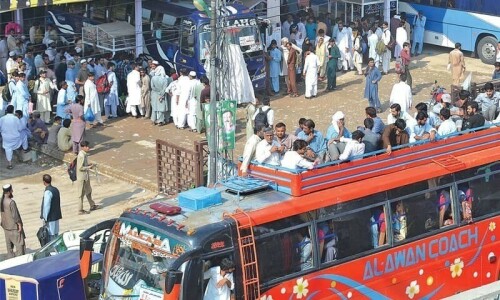‘Kayani was reluctant to launch N Waziristan operation’

ISLAMABAD: A former Pakistan Army spokesperson has revealed that former army chief Gen (retd) Ashfaq Pervez Kayani was reluctant to launch a major military offensive against Taliban militants in North Waziristan despite the military leadership's decision three years ago.
Speaking during an interview with BBC Urdu published on Monday, former DG Inter-Services Public Relations (ISPR) Maj Gen (retd) Athar Abbas said that the military leadership of the country was in favour of launching the military offensive in 2010, however, it could not have been launched due to the indecision of Gen Kayani.
Abbas replied in the affirmative when questioned whether personal weaknesses of the former army chief played a part in the reluctance to launch the operation. “This is generally true,” he said.
“He (Kayani) was hesitant regarding the military offensive in North Waziristan … he was delaying the decision because he thought the decision would be considered as his personal verdict.” “That is why he kept on delaying the decision which cost us dearly,” Abbas added.
 |
| Former DG ISPR Maj Gen (r) Athar Abbas. – File Photo |
He said that this indecisiveness wasted a lot of time and the country, public, government and the armed forces paid a heavy price for it.
“The delay has strengthened the extremists … they have grown in numbers and they are more resourceful, they are better connected with each other now and in my opinion things have become more complicated,” said the former DG ISPR.
He revealed that the then top military leadership had decided to launch the military operation in North Waziristan upon recommendations of military commanders stationed there and on the basis of intelligence reports gathered from the area.
“The on ground military commanders were of the view that peace could not be restored in the country without a major military offensive because all kinds of militants had gathered in that area.”
Abbas said before that there were two kind of opinion prevailing among the top military leadership ranks. “One opinion was in favour of the offensive while another group was for delaying the action,” he added.
He said dealing with Haqqani Network was one of the reasons for the delay, adding that there was another issue of internally displaced persons (IDPs).
Athar Abbas revealed that the United States also contributed to the indecision, saying that unremitting pressure of launching the operation from the American leadership made it difficult for the Pakistani authorities as it would have looked like a decision taken on the behest of the US.













































